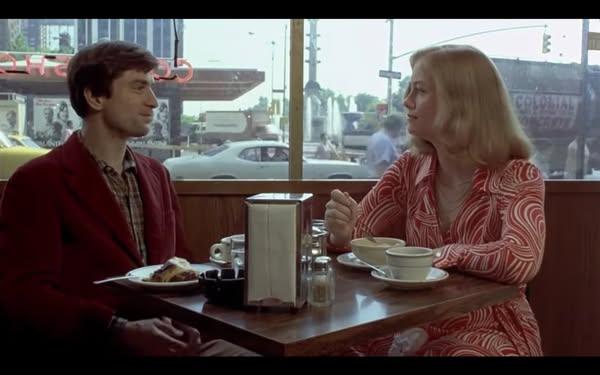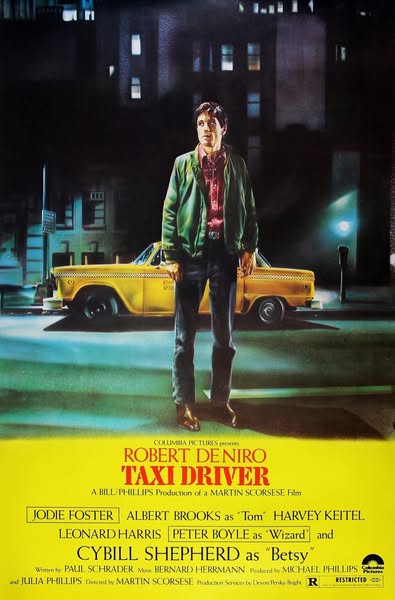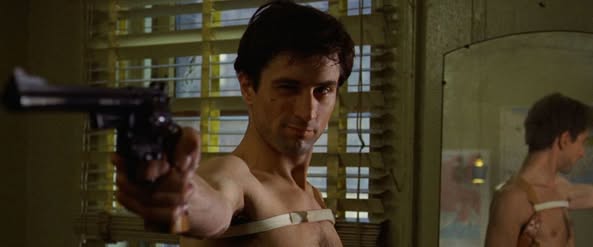Taxi Driver (1976)

Taxi Driver (1976), directed by Martin Scorsese, is a landmark film that delves into the psychological turmoil of its protagonist, Travis Bickle, played by Robert De Niro. Set against the gritty backdrop of 1970s New York City, the film explores themes of alienation, violence, and the search for meaning in a chaotic world.
The narrative follows Travis, a mentally unstable Vietnam War veteran who works as a taxi driver, navigating the city’s underbelly. As he becomes increasingly disillusioned with the corruption and moral decay around him, Travis’s isolation deepens. He grows obsessed with cleaning up the city and saving a young prostitute, Iris (Jodie Foster), from her circumstances. His descent into madness culminates in a violent confrontation that raises questions about morality, justice, and vigilantism.

De Niro delivers a haunting performance, capturing Travis’s internal struggles and emotional volatility. The iconic line, “You talking to me?” encapsulates his fragmented psyche and growing detachment from reality. Jodie Foster’s portrayal of Iris is equally powerful, evoking both vulnerability and resilience in her character.
Scorsese’s direction is masterful, utilizing a combination of striking visuals and a haunting score by Bernard Herrmann to create an immersive atmosphere. The film’s cinematography, by Michael Chapman, captures the gritty streets of New York, enhancing the sense of isolation and despair that permeates Travis’s world.

Taxi Driver explores profound themes of alienation and the quest for identity in a society that often overlooks the marginalized. It raises questions about the nature of heroism and the potential for violence that exists within all individuals. The film’s portrayal of mental illness and societal decay resonates with audiences, making it both a character study and a broader commentary on urban life.
Upon its release, Taxi Driver received critical acclaim and won the Palme d’Or at the Cannes Film Festival. It sparked discussions about its depiction of violence and its moral implications, solidifying its place in cinematic history. The film has since become a cultural touchstone, influencing countless filmmakers and artists.

In summary, Taxi Driver is a haunting and thought-provoking exploration of loneliness, violence, and the search for purpose. With its powerful performances, striking direction, and profound themes, the film remains a significant achievement in American cinema, continuing to resonate with audiences and provoke reflection on the complexities of human nature and society.











